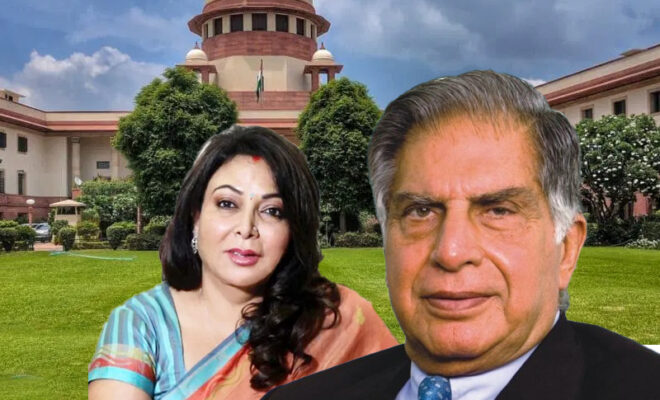Radia Tapes Controversy: Supreme Court Will Hear Ratan Tata’s Plea After 10 Years

Ratan Tata had requested the Supreme Court for a copy of a report of the ‘Radia Tapes’ scandal which was linked with Niira Radia, in August 2012.
The Supreme Court will finally hear businessman Ratan Tata’s request for an investigation into the 2010 audio recording leak regarding former corporate lobbyist Niira Radia after an eight-year break.
Ratan Tata claimed that the disclosure went against his right to privacy. He filed the petition about 10 years ago, in 2011. It was last considered by the Supreme Court in 2014.
Niira Radia’s phone discussions with businesspeople, journalists, government officials, and other high-profile people were taped more than 10 years ago as part of a tax investigation.
The industrialist Mukesh Ambani was a customer of her PR firm, Vaishnavi Corporate Communications, which is no longer in operation, when her phones were first tapped in 2008 and then again in 2009.
In August 2012, Ratan Tata asked the Supreme Court for a copy of the government’s report describing the tapes’ leak, which became known as the “Radia tapes” scandal.
In 2010, a number of Ratan Tata’s encounters with Niira Radia were documented by the media. He then filed a lawsuit against the government, saying that the release of the tapes was a violation of his right to privacy.
In a momentous ruling rendered in August 2017, the Supreme Court decided that the right to privacy is a constitutional one.
Nine judges reached the same conclusion, yet they each provided a distinct justification for this.
The ruling on the right to privacy dealt a serious blow to the administration’s argument that the Constitution does not automatically protect individual privacy as a fundamental right.
Ravi Shankar Prasad was the law minister at the period. He asserted,
“Judges had determined that privacy as a fundamental right is subject to reasonable constraints.”



